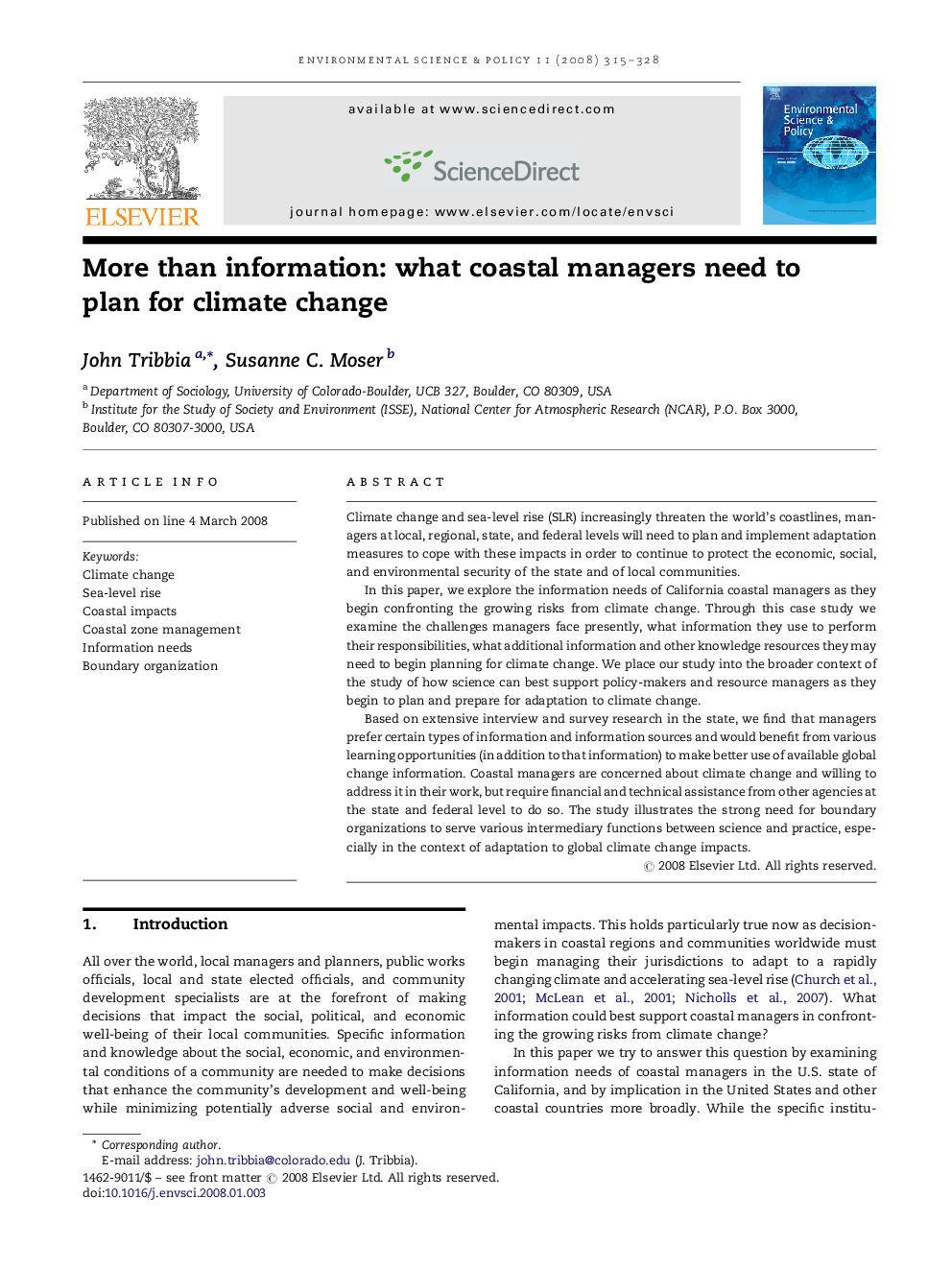| Article ID | Journal | Published Year | Pages | File Type |
|---|---|---|---|---|
| 1054229 | Environmental Science & Policy | 2008 | 14 Pages |
Climate change and sea-level rise (SLR) increasingly threaten the world's coastlines, managers at local, regional, state, and federal levels will need to plan and implement adaptation measures to cope with these impacts in order to continue to protect the economic, social, and environmental security of the state and of local communities.In this paper, we explore the information needs of California coastal managers as they begin confronting the growing risks from climate change. Through this case study we examine the challenges managers face presently, what information they use to perform their responsibilities, what additional information and other knowledge resources they may need to begin planning for climate change. We place our study into the broader context of the study of how science can best support policy-makers and resource managers as they begin to plan and prepare for adaptation to climate change.Based on extensive interview and survey research in the state, we find that managers prefer certain types of information and information sources and would benefit from various learning opportunities (in addition to that information) to make better use of available global change information. Coastal managers are concerned about climate change and willing to address it in their work, but require financial and technical assistance from other agencies at the state and federal level to do so. The study illustrates the strong need for boundary organizations to serve various intermediary functions between science and practice, especially in the context of adaptation to global climate change impacts.
